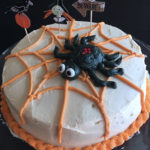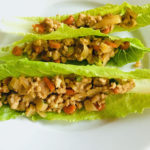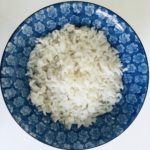There was a very well-written article in the New York Times on Feb 2 called Telling Food Allergies From False Alarms. The article brings up the fact that some families are unnecessarily avoiding some foods because of falsely positive food allergy blood tests, which can show that someone is allergic to a food when they actually are not. If a person has no history of food allergy, never had a reaction, nor any reason to suspect a food allergy, then a blood test may not be a reliable way to diagnose food allergies.
A doctor in the article is quoted as saying, “The most important question in diagnosing food allergy is whether the child has tolerated the food in the past.” Does the child have a history of food allergy? In my case, my daughter as a baby had eczema all over her face whenever she would eat eggs. That’s why I brought her in
for food allergy testing in the first place, never expecting or even having much knowledge of food allergies before that. She had the skin-prick tests for various foods, and came up positive on several. She subsequently had a reaction (accidentally) to both eggs and cashews, two of the positives. She has never eaten some of the other foods that she tested positive to — shrimp, crab, peanuts — but given the seriousness of shellfish and nut allergies, we were advised to strictly avoid them.
My allergist told me the exact same thing as the doctor quoted in the article: “The only true test of whether you’re allergic to a food or not is whether you can eat it and not react to it.” Of course, you don’t want to be experimenting at home if you really suspect a serious food allergy, but food challenges can be done by an allergist in a medical setting.
Yesterday, we took my daughter in for a blood test for the same foods that she tested positive on the skin-prick test. Our allergist wants to use the blood test as a way to confirm or question the results of the skin-prick test, to use it as another tool for knowing what she may be allergic to (besides the obvious ones that she has reacted to). Once we get the results of the blood test, we may start doing food challenges for those foods that seem borderline or no longer show positive results. It is possible to grow out of some food allergies.
“Even when a food allergy has been confirmed, parents should have children retested, because many allergies are outgrown, particularly in the cases of milk, eggs, soy and wheat,” the article points out. I am certainly hoping that is true for my daughter!
I commend the New York Times for publishing a logical piece of writing that attempts to make sense of the rise in food allergy diagnosis, rather than the parent-blaming opinion put out by another news agency.







Julie Farmer says
I read the article that you were upset by. I agree that it has an insulting tone, but the point he is trying to make is that some parents are THINKING that their child has allergies when their child really DOESN’T. Your child obviously has an allergy, so the author wouldn’t consider you one of those parents. He would consider your child to be one of the 1% who actually has a bona fide allergy. Don’t be so quick to take things personally.